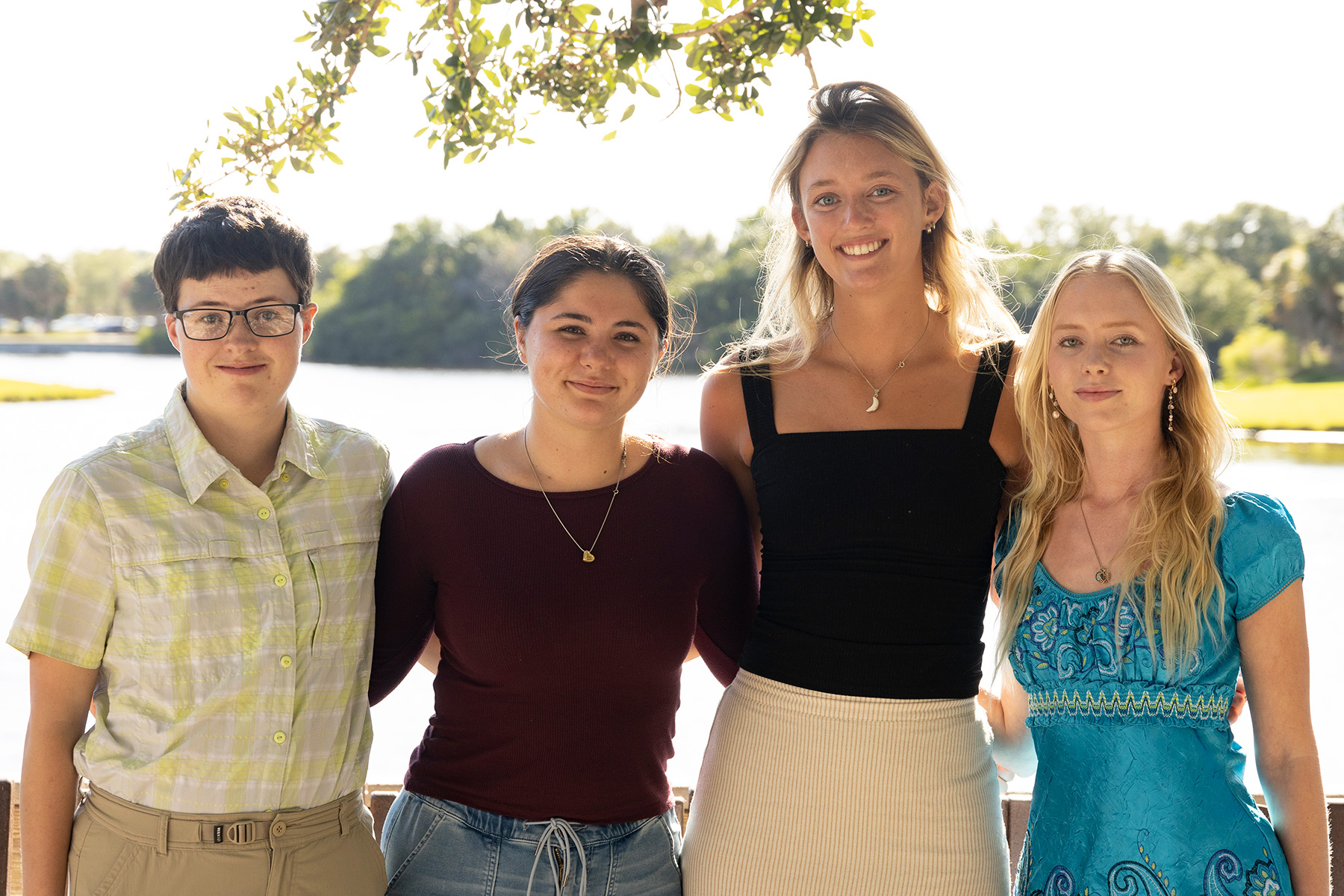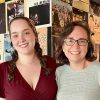Four Eckerd College sophomores were recently awarded 2023 National Oceanic and Atmospheric Administration (NOAA) Ernest F. Hollings Undergraduate Scholarships, bringing the school’s total number of recipients to 109—the most at any college in the country.
The students are Sydney Paull, a marine science student from San Diego, California; Elizabeth Oliver, a marine science and Spanish student from Lakehurst, New Jersey; Sophie Strock, a marine science student from Centerville, Massachusetts; and Karin Ebey, a biology and chemistry student from Los Alamos, New Mexico. Karin also recently received a prestigious Barry Goldwater Scholarship.
Since 2005, NOAA has selected students from around the nation to receive up to $9,500 per year for two years of full-time study and a 10-week, full-time, paid summer internship at a NOAA facility one year after receiving the award. The scholarships honor former U.S. Senator Ernest “Fritz” Hollings of South Carolina, an advocate for ocean policy and conservation, and are intended to bolster undergraduate training in NOAA mission sciences, as well as increased environmental literacy.
Those goals are perfectly suited to Sophie, who grew up on Cape Cod “surrounded by water, and I’ve seen the effect humans have had on our environment in a negative way,” she says. ”I wanted to find ways to conduct research that would implement policies that will protect the environment.” That led her to Eckerd College and the Microplastics in Tampa Bay lab run by Shannon Gowans, Ph.D., professor of marine science and biology, and Amy Siuda, Ph.D., associate professor of marine science.
“I’ve been able to work alongside Dr. Siuda and Dr. Gowans,” Sophie adds. “That has been very important. It has given me amazing opportunities to help conduct research, work in a lab and even present at the Eckerd Research Symposium. I believe that made me a more qualified applicant for the Hollings Scholarship.”
Sydney also grew up near the water—the Pacific Ocean. “Growing up on the coast,” she says, “just opens your eyes from a young age to environmental issues. Getting the Hollings Scholarship is a huge honor, but it also means I can contribute to something meaningful and hopefully end up helping others.”
Elizabeth says earning the scholarship could mean “I won’t have to worry about taking out another loan, because I want to go on to grad school,” she says. “And working with NOAA was my dream job. The internship opens the door to potential jobs with them in the future, and it gives me credibility to add to the research I do have.”
Elizabeth credits Polina Maciejczyk, Ph.D., professor of chemistry at Eckerd, with helping frame her application. “I sat with her for an hour, and she told me I need to write why I should be a recipient,” Elizabeth says. “That I need to advocate for myself because I’m going to have to do that for the rest of my life. It was a very impactful conversation.”
Karin notched a rare double by earning a Goldwater Scholarship on March 31 and then, three days later, a Hollings Scholarship. “I am excited for the internship associated with the Hollings Scholarship to conduct more research and explore careers in government,” Karin says. “I am thankful for my professors, mentors and family supporting me as I chase my passions in science.”
Kathleen “Kat” Robinson, Ph.D., Eckerd’s assistant dean of faculty, says that all told, the Hollings Scholarship provides more than $30,000 of support for each student.
“This support is shared over two years and a summer internship,” she adds. “Eckerd has been supremely successful, and we are still the nation’s top producer of Hollings Scholars because our students are doing high-quality research as first- and second-years.
“In addition, our students, as they are skilled in the liberal arts tradition, have the ability to craft solid arguments and to provide clear connections to their critical thinking and transferable skills in their applications,” Robinson says. “We are the top producer because of our students, our faculty, our resources and our liberal arts curriculum.”













